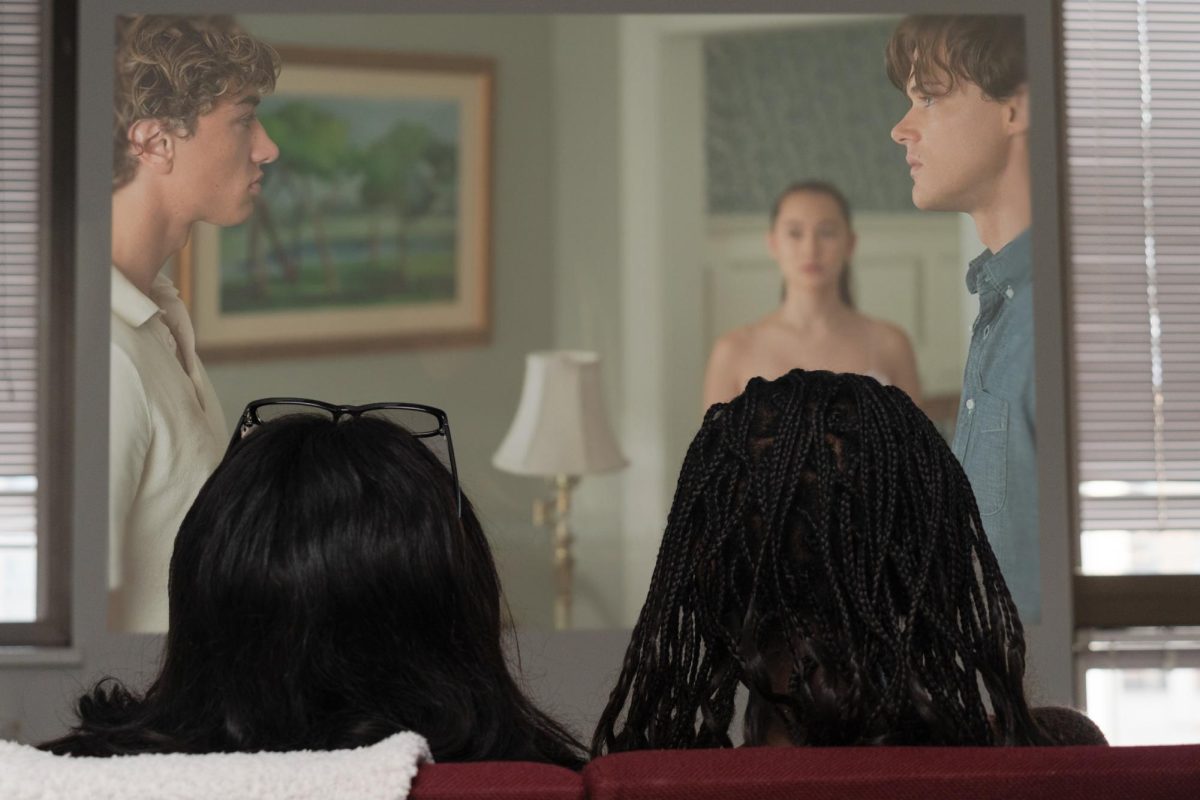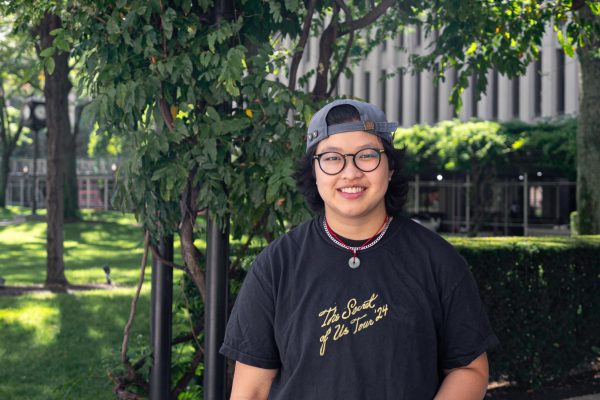It was the phone call heard around the world: “Belly, cacao is the bean — it’s what chocolate is made of. Look, the whole flavor profile depends on the bitterness of the dark chocolate and the sweet tartness of the raspberry.” It was also the phone call that made me think: Why the hell am I watching this show?
I didn’t have the answer until I slipped down a rabbit hole on TikTok, finding meme after meme, after meme about that ridiculous line. By the time I was watching romantic edits of Jeremiah and a chocolate cake set to Chappell Roan’s “Casual,” it hit me: this is why we watch. We want to understand those memes when they inevitably flood our social media pages after each new episode, to keep up with the discourse of it all and not to feel left out of something everyone is talking about.
When a television show goes viral, like “The Summer I Turned Pretty,” most Gen Z-ers feel almost obligated to binge it and join the conversation, no matter how bad the show might be. Our tolerance of bad acting, painfully awkward scenes and drama so confusing it gives us a headache makes it clear that we’re not chasing quality here. We’re searching for a sense of belonging — for the chance to be a part of a community, to choose a “team” and to fold that into our identity.
Participation is the whole point. It’s why we watch.
That’s what makes “The Summer I Turned Pretty” such a perfect show for this kind of cultural latching on — the fact that we are invited to pick a side. Are you Team Conrad or Team Jeremiah? The fun is in choosing and then fully throwing yourself into the team you’ve sworn your loyalty to.
The thing about so-called “bad television” is that it is, in fact, the best kind of television for community-building. Messy love triangles, melodramatic betrayals, plot points that make no sense — these aren’t flaws, they’re talking points.
Sure, we discuss more refined, prestige television like “Severance” or “Adolescence,” but that conversation often takes the form of admiration or analysis. What “bad” television offers us is different. We approach it with the same kind of unhinged enthusiasm that suburban dads reserve for football Sundays. We yell at the screen, throw insults at the other team and root for our chosen favorite.
It’s not just passive consumption; it’s participation. And that participation is the whole point. It’s why we watch.
This phenomenon was also witnessed earlier this summer with the addictive reality television show “Love Island USA.” While season seven is known as “the worst season” of the show (a label well agreed on by its audience across the internet), it also set the record as Peacock’s most-watched original season of all time, garnering 18.4 billion minutes streamed. So why did so many of us keep watching even while calling it unbearable?
Nicolandria. Amaya Papaya. “I Pick Clarke.”
Now, if you watched “Love Island,” those words and phrases would mean something to you. And if you didn’t … see, don’t you want to know?
This season of “Love Island” redefined what it means for young audiences to rally around so-called “bad” television. The discourse didn’t just stay online. It became the summer of the “watch party.” Across the country, bars hosted fans to swoon over the slow burn of the century and root for their favorite “sensitive gangster” all together, in person.
Both long-time fans and curious newcomers just looking for a fun time packed into these spaces to watch the drama as it unfolded. It didn’t matter if you knew everybody’s name on the screen or caught every whispered word. What mattered was simply being together and sharing our passion in real time.
The fact that these shows don’t necessarily require our deep attention to follow along is what makes community events like this possible. But for this same reason, these shows are often shamed, and Gen Z’s obsession with them is sometimes labelled as nothing more than cultural brain rot. “The Summer I Turned Pretty” and “Love Island” have both been frequent targets, criticized for their shallow dialogue or overdramatic plots.
In fact, these edits and endless debates are revealing a generation that is deeply creative, passionate and community-driven.
To skeptics, this isn’t community-building — it’s a sign that younger generations would rather binge fluff and meme it to death than engage with anything that demands focus or thought. Often, when Gen Z builds these online spaces, it just gets dismissed as mindless bandwagoning that values short-lived trends over individuality or “real culture.”
But I believe that the content Gen Z creates out of so-called “mindless” television is evidence that the generation is anything but. In fact, these edits and endless debates are revealing a generation that is deeply creative, passionate and community-driven. This is cultural innovation, not cultural decline.
Scroll through TikTok and you’ll see that the real magic isn’t just in the shows themselves, but in the edits fans create out of them. Young creators turn 30 seconds of awkward flirting into sweeping love stories, or a single look from Conrad Fischer into a romantic tragedy set to Jeff Buckley.
This is where it becomes clear it isn’t only about jokes and memes. Fans are claiming the role of storytellers, reshaping these shows into something new and giving them fresh meaning that often outweighs the original.
Too often overlooked is the sheer talent behind these edits. To splice together just a few seconds of footage into something that feels cinematic takes an incredible amount of patience and technical skill. To choose the perfect glance, the perfect pause, the perfect line of dialogue and then pair those moments to the right song — one that builds at just the right second or drops into silence to let the tension land — that requires artistic vision. And the audience notices.
Just one edit of Belly and Conrad posted on TikTok three weeks ago has garnered 6.2 million views, 1.1 million likes and over 3500 comments. These videos double as art and as conversation starters, drawing young people into a community where they are encouraged to shape their own opinions and revel in a shared obsession.
So go ahead Gen Z, keep watching “bad” TV. We’ve turned it into something bigger than itself: A way to create, connect and claim your place in the culture.



